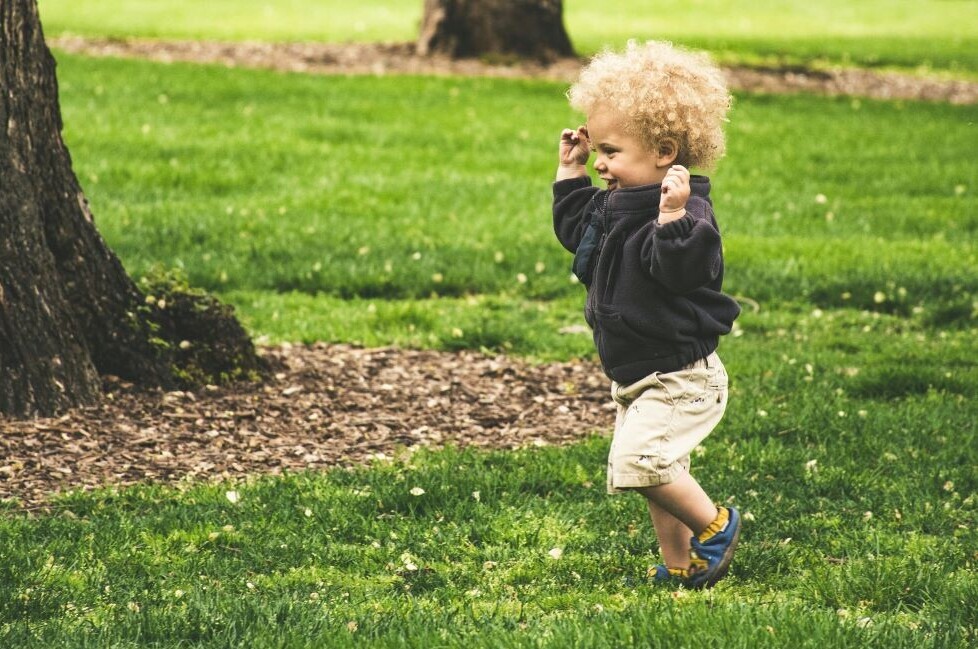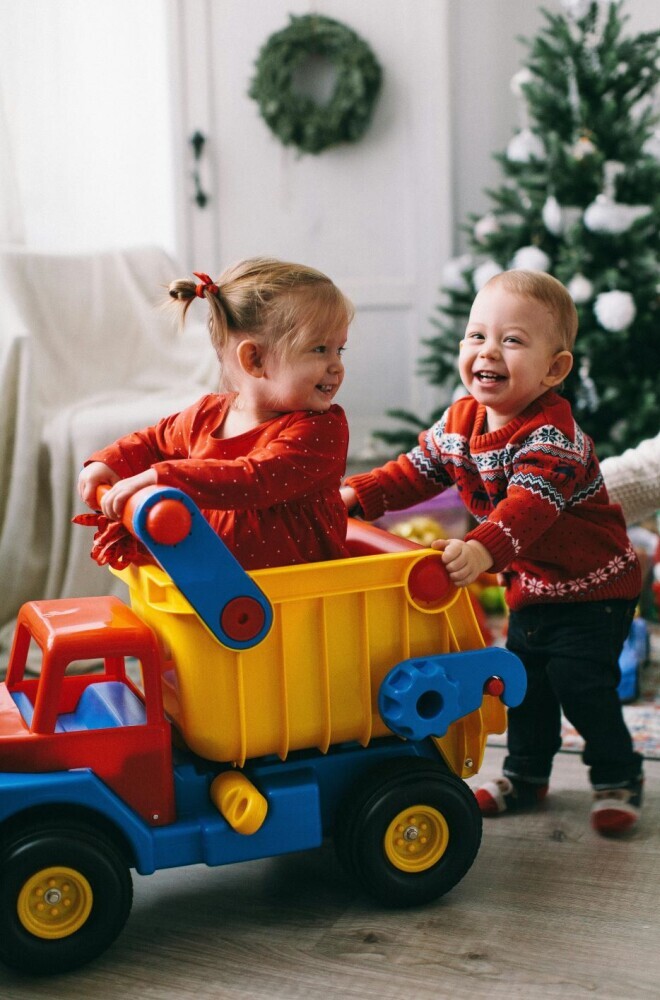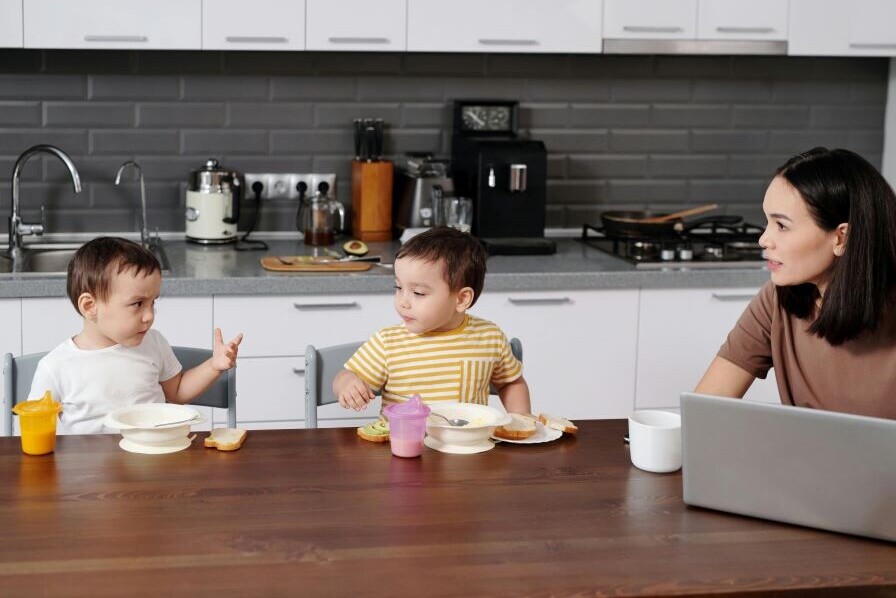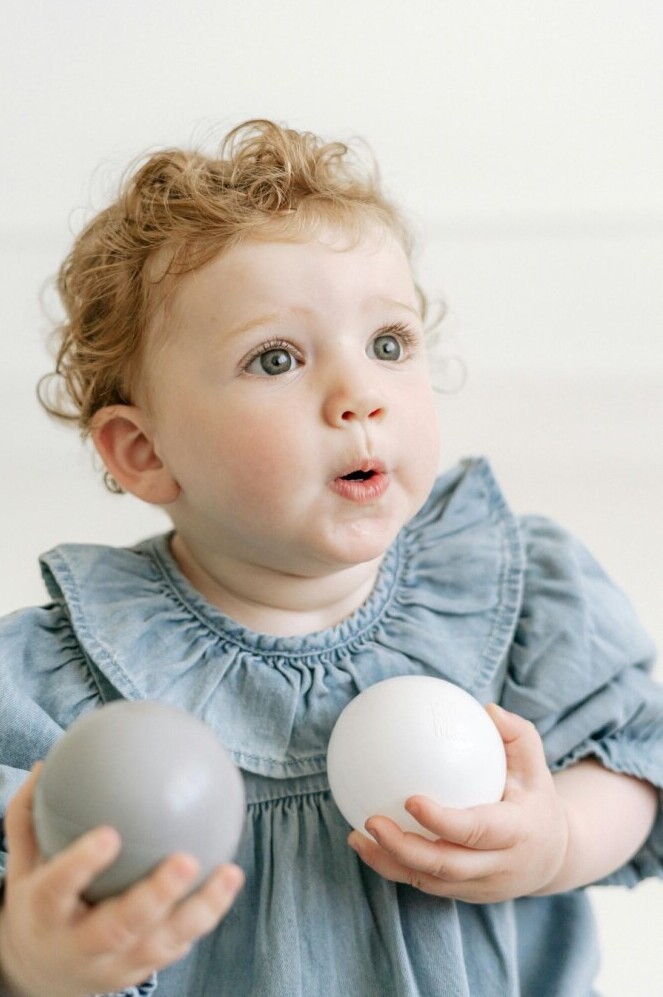
Autonomy in Child Development
The autonomy your child will be developing in the next six months is increased physical independence with increased speech for naming objects, events and people. As your child’s interest in exploring his environment increases, he will have more of his own interests and ideas. You will increasingly need to take these ideas and interests into account in your interactions with your child. Just remember, your child is exploring her world for the first time. Everyday, she will have many first time experiences.
Toddler Cognitive Developmental Milestones
In her cognitive development, your child will begin to discover how the world is put together. With his blocks, he will discover building towers by stacking them. You will notice your child enjoys knocking her towers over as much as building them. She is not being destructive or failing to appreciate her accomplishments. She is also discovering how things are dismantled. We all enjoy seeing a building demolished. It is all part of learning how the world works. This knowledge is important for his cognitive development. Let your child play freely with his blocks and toys. At this stage, your child’s learning comes mainly through exploration and experimentation.
Your child’s categorization skills will continue to develop through the categories of shapes and colors. For example, there are a range of red colors. She will be able to group these together if asked. He will also recognize that an oval is more similar to a circle than a square and that squares and triangles go together. This is all part of learning how the world is structured.
Social interactions are part of the human world and your child will also begin to learn how that part works. Thus far, he has generally ignored requests that you made. He will now begin to follow two-part instructions. This is essentially part of his developing imitation skills. She has learned how to repeat an action you do; now she will repeat actions that correspond to what you say. This development provides a foundation for his social, as well as, cognitive development.
The most important skill for the development of all the other skills is pretend play. This began emerging between one year and eighteen months. In this developmental phase, her play routines will increase in complexity and reflect functional routines in her daily life. Pretend play brings all her developmental skills together and places them within a social context. This reflects the importance of social interaction for human existence. By playing with your child, you can help him understand the social dimension of his physical world. For example, you can suggest he can use a toy phone by “calling” other people. Instead of merely driving a toy car, he can give someone a ride somewhere. You can model things to say to these other people. She can respond to these suggestions, now, because other people are becoming more important in her world.

Social Emotional Milestones Early Childhood
Due to her increased cognitive development, your child is beginning to notice other people. In her play, she will want to play with other children. Playing with children will become more fun for her than playing with an adult. He will also enjoy play dates. Social development is complex and is not a skill that is easily described in task steps like other skills can be, such as washing one’s hands. Social interaction involves much spontaneity. Being able to engage with others in a spontaneous manner is an important characteristic of social interaction. Learning this spontaneity is an important skill for your child. It will take years, and your child will master it in stages.
That your child is learning these skills will be indicated by her interest in playing with other children. It indicates that he is becoming aware of the give and take important in social interaction. She will not be able to share her toys at this stage, but she can learn to trade a toy for another one a child has. As she increases her play skills, interaction with her peers will acquire special meaning for her. These early skills, though simple, are important blocks in his foundation of social skills through which he will become part of his generation and upon which he will build his adult social life.
Through her development, your child is becoming aware of herself as an individual. She is learning her needs and interests and, through her language development, how to express them. You will notice this development by an occasional act of defiance. While she has learned to comply with a two-step directive, she will occasionally say “no” to your requests. This defiance is not a behavior that needs to be punished. Rather, you need to teach your child why he needs to follow your directions. This learning should include not only what your child will get out of obedience but what he will miss by not following the directive. You will need to take some time with these interactions. Give your child time to process the information you present. Remember, your child is not just learning to obey but to think about his world. This is something new to him. He is having to control his emotional response to not getting his way. He needs some time and space for his emotional adjustment.
 Language Development Milestones Toddlers
Language Development Milestones Toddlers
Your child has slowly been making speech and language part of her world. However, most of her interactions with her environment have used her other developmental skills, such as motor, cognitive, and social interactions. As he grows older, language will increasingly dominate his interactions with his environment. In the next six months, you will witness this preference for language emerge. He will begin to ask questions, name things, use more two-word phrases, and say the names of familiar people. You can help your child acquire all these skills through your daily interactions with her.
An important function of language is that it provides a means for your child to understand himself and his world. When you look at your environment you see it through your language. Things in your world have names. When you occasionally see something whose name you don’t know, you ask about its name. When your child looks at the world not everything has a name. Naming things that you and your child encounter will help your child acquire this language. To be naming things will seem a little odd to you but not to your child.
Ask your child questions about what she is seeing, what she is doing, and what she is feeling. This will teach her a way of acquiring information about her world. Use these questions to have conversations with our child. These conversations will be short, but through them your child will discover how to use language to interact with others and how to get his needs met.
 Movement Development Milestones
Movement Development Milestones
Movement development for your child covers both fine and gross motor skills. The gross motor skills are running, jumping up and down, throwing balls, and climbing up stairs holding on to the rails. Of course, these skills have both gross and fine motor components, but most of the skill is gross motor. However, the skill of drawing lines and round shapes is mostly a fine motor skill. It also involves a cognitive skill of recognizing the shapes. Fine motor skills often have cognitive components to them. In her drawing, your child is learning to represent visual symbols. His early drawing will be comprised of scribbling. This activity should be encouraged and materials provided for it. Your child’s first efforts will be random scribbling or simply making marks on paper. The marks will not represent anything. At this stage, drawing is totally the physical act of marking on paper. Your child is learning to see the paper as a representation of space. Just encourage her to make different kinds of marks on paper. Encourage him to scribble.
Improvement in his skills will occur in small steps. Modeling the skill and verbally encouraging your child is the best teaching strategy. Your child will not benefit from a lot of hands-on assistance. From your encouragement and models, your child will discover the skill for herself. These skills have many small steps for her to learn and what she needs most is your encouragement. Remember, her learning comes from her experimentation with objects and from her play. She does not know that she is learning; she experiences her learning as play. This relationship to learning is something we adults have lost. For us, learning is not fun but considered to be more like work. Don’t turn your child’s learning into work. Her experiences with acquiring these developmental skills will form the foundation of her attitude to learning that will be with her for the rest of her life. Help her have a pleasant experience.
Toddler Development Activities
At this stage, your child’s developmental skills still have significant motor components but they are beginning to be more integrated with the other skill domains, language, cognition, speech, and emotions. Remember that emotional development is an important aspect of your child’s development. This will be true for all developmental stages. Emotions are experiences that seem to just happen to us. They seem to be out of our control. For that reason, emotions can be scary to a child. This is not true, but your child will have to learn that she can control her emotions. She will need you to be there for her as she experiences her emotions and learns how they work.
At this stage, playtime is becoming more important for your child. It is through play that she learns. Her learning is not structured. She does not learn by repeating a skill over and over. This type of learning activity is inappropriate for a child at 18 months to 2 years. The low structure found in play is the best type of activity for your child’s learning needs. At this stage, play is learning. Do more than watch your child play. The most important thing you can do for your child’s development is play with her.